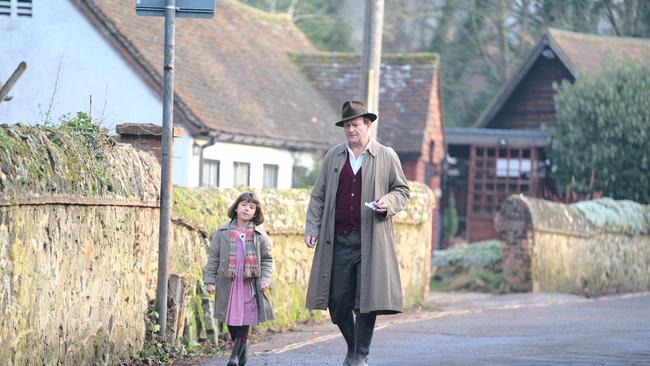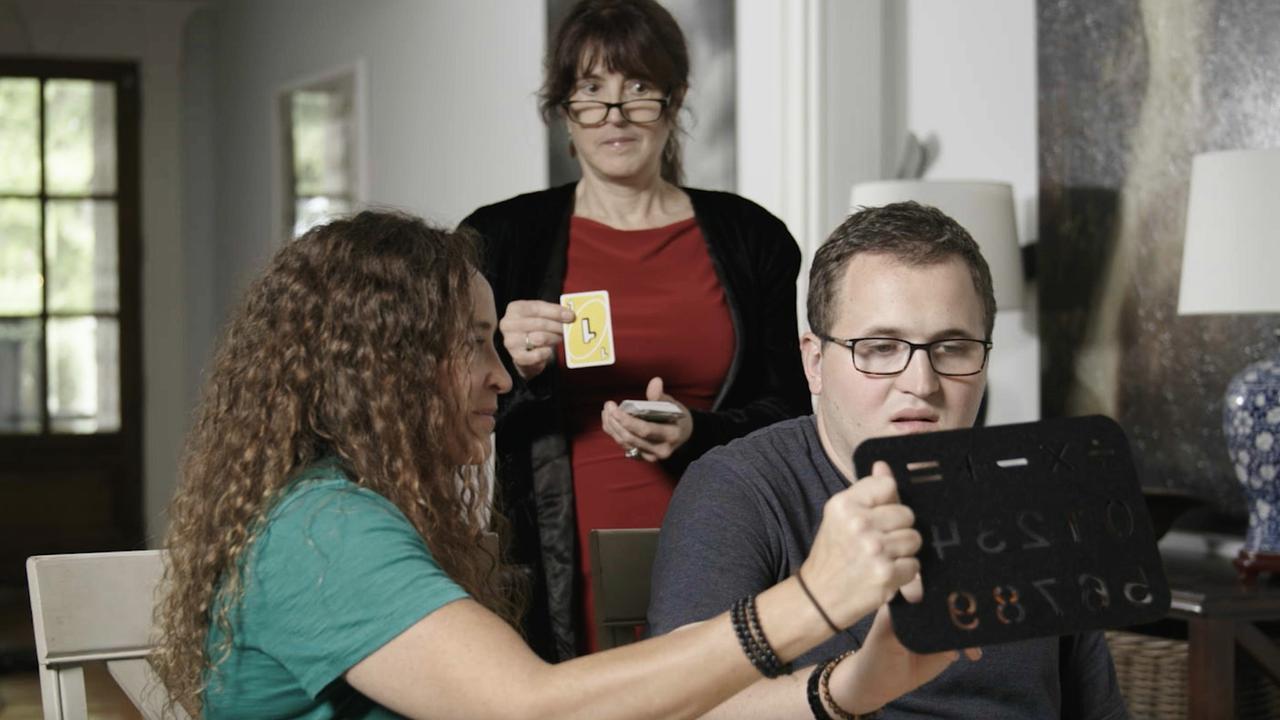To Olivia: inside Dahl’s private turmoil
The English author of Charlie and the Chocolate Factory is inconsolable after the unexpected death of his favourite child.

To Olivia (M)
In cinemas
★★★½
Roald Dahl, the English author of such revered children’s books as James and the Giant Peach and Charlie and the Chocolate Factory, was married for 30 years (1953-1983) to American actor Patricia Neal. They lived in a cottage in the English countryside and had five children, the eldest of which, Olivia, died of measles encephalitis in 1962. This is the period in which To Olivia is set; Dahl (Hugh Bonneville) is inconsolable after the unexpected death of his favourite child; he spends hours alone in a shed in the garden in the company of an imaginary boy, and the marriage is placed under severe strain.
It’s at this moment that director Martin Ritt (Conleth Hill) arrives from Hollywood to offer Neal (Keeley Hawes) the role of housekeeper in his forthcoming film Hud, in which she would play opposite Paul Newman. Dahl dismisses the offer out of hand; it’s a demeaning part, he thinks, and a small one. But Neal accepts the role and, as any film enthusiast will know, won an Oscar for it.
One of the strengths of this modest film, which is partially based on Neal’s memoir “An Unquiet Life”, is the casting. Hill looks remarkably like Ritt, Sam Heughan is a very acceptable Paul Newman, and both Bonneville and Hawes bear passing resemblance to the real-life characters they play. The production, directed by John Hay, is a touch prosaic (it has the feel of a drama made for television rather than for the cinema) but the characters are sufficiently interesting to keep the viewer involved in their complicated private lives.
-
Bigger than Us (M)
In cinemas
★★★★
French director Flore Vasseur’s documentary, Bigger than Us, follows 18-year-old Balinese environmental activist Milati as she visits several countries to see for herself the ways in which the planet is being degraded. Although she doesn’t actually reference Greta Thunberg, who is seen briefly taking part in a street demonstration, Milati belongs to that generation of young people who are demanding change.
Her activism began when she was 13 and she became part of a campaign against the use of plastic bags. Her travels in the film – presumably financed by the production company – take her to various parts of the world to confer with other young activists who are more or less her own age. In Lebanon she meets Mohammad, a Syrian refugee who has started a school. In Malawi, Memory campaigns against child marriages. In Rio, Rene, who edits a local newspaper, stands up against the violence in the favelas. Native American Xiuxtelcatl is fighting the oil companies engaged in fracking in his native Colorado. Englishwoman Mary, who lives on the Greek island of Lesbos, is helping the refugees fleeing from North Africa to Europe. Winnie, in Uganda, is also working with refugees. And back in Jakarta, Milati contemplates the flooding of much of the city.
Each of these encounters will be of considerable interest to anyone interested in the subject, but of course this is a documentary that is preaching to the converted. It’s a very well made film, Milati is a most appealing character, and its message – a call to arms directed at young people – deserves to be heard.
-
Little Tornadoes (M)
In cinemas
★★★½
Co-scripted by director Aaron Wilson and Christos Tsiolkas, Little Tornadoes is a modest but quietly affecting film about a family thrown into despair when the wife and mother suddenly leaves.
The year is 1971, a time of change even in this backwater in rural Victoria. The running sore of the war in Vietnam and the growing rise of the feminist movement are among the social and political changes that reach into even remote areas of the country like this one. Billy McMahon is prime minister, but within a year Gough Whitlam will be elected.
Leo (Mark Leonard Winter) is dimly aware of the changes that are taking place. A metalworker in a small factory, he is distraught when left alone with his two children, Maudie and Jake (played by real-life siblings Minnie and Freddy Liszukiewicz). He fails to get much sympathy from his cranky, distant dad, Jim (Robert Menzies), but support eventually comes with the arrival of Maria (Sylvia Colloca), a young widow recently arrived from Italy, who agrees to work for Leo, to clean and cook – wonderful Italian dishes – and look after the children.
Wilson handles this quietly touching material with a deft hand, with the little mixed-race community providing a convincing backdrop to the small-scale drama.



